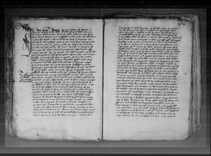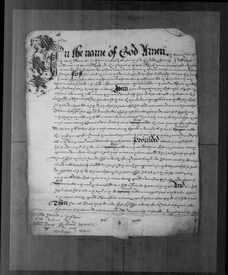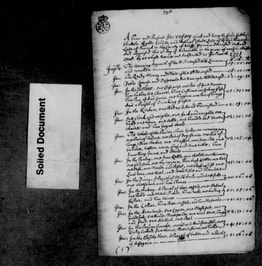TRUNCH WILLS
Wills sometimes give fascinating information about families, although this is often surrounded by dense legal language. The Norfolk Records Office catalogue lists over 300 Trunch wills and probate records going back to the 1400s. There are some familiar names such as the Primroses and Worts but also others that have since disappeared. Even the catalogue entries give interesting details - as well as names and dates they sometimes give occupations and marriage status. Click here for the full list of Wills.
And click here for my transcriptions of some of the wills. Transcribed wills
From a general interest point of view the wills reveal the ways in which the more prosperous families in Trunch were linked through marriage - in particular during the first half of the 19th. Century it was the Masons, Weeds, Longs and Primroses. The longest will is that of William Primrose in 1832, where Trust Funds were set up with sums of £3000 and £4000 - obviously a very wealthy man.
In addition to bequests of money and property it is noticeable how often bedsteads, mattresses and sheets were specifically mentioned, suggesting that they were among the most valuable of the household items at that time. Some men were also at pains to make sure that any wealth went only to their wives and not to any future husbands.
Although many of the wills are those of farmers, landowners, "gentlemen" and their rich widows, there are also 2 for butchers, 2 for carpenters and 1 for a shopkeeper. But the most intriguing will is that of Samuel Wortley in 1818 where children with the surname Amiss are called "the natural children of my wife" suggesting an earlier marriage, but later a codicil is added, bequests changed and each boy is described as "my natural son". A possible explanation can be found on the Wortleys page.



